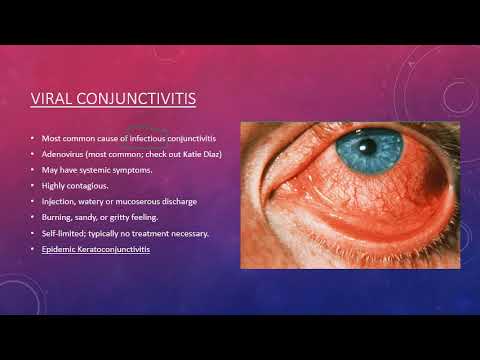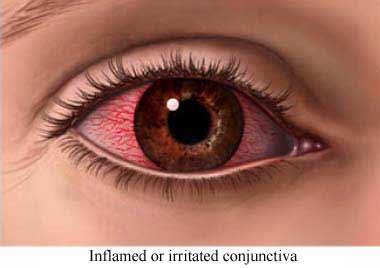
One of the most common conjunctivitis causes is an allergic reaction. You can reduce your symptoms by avoiding contact with the irritant. Artificial tears and cool compresses are effective remedies for mild symptoms. To relieve severe symptoms, use steroidal or antihistamine eye drops. Oral antihistamines can help control the condition. If you have a persistent case, seek medical advice.
Viral conjunctivitis is not treatable. The symptoms usually clear up in seven to 10 days. It can be treated with a warm compress. The treatment for sexually transmitted diseases is different than for viral conjunctivitis. Chlamydia is a common infection among adults, but it can also occur in newborns. It can pass through the birth canal. You should consult a doctor if you suspect you have this disease.
Bacterial conjunctivitis is caused by bacteria. There are various types of bacteria that can cause this condition. The most common types are Staphylococcus aureus, Haemophilus influenzae, Streptococcus pneumonia, and Pseudomonas aeruginosa. Other causes include allergens and irritants. In addition to bacterial and viral infections, allergies can also lead to conjunctivitis.
There are several treatments for conjunctivitis. Home remedies include using a cool facecloth soaked in water. You can also use a cotton wool soaked in boiled water to remove discharge from the eyelids and lashes. In addition, you should use lubricant eye drops to ease the discomfort. If you have chronic conjunctivitis, you should seek medical attention to treat it as quickly as possible.
Infections are common in children. If you are concerned about conjunctivitis that your child has, it is important to see a doctor. If you experience pain or discomfort, your doctor may prescribe antibiotics. If your eyes are red or pink, they may be infected with bacteria or viruses. The symptom of this infection is a watery, yellowish discharge or white film on the eyelid. Symptoms of infectious conjunctivitis can affect your vision, but it usually goes away on its own.

Although the causes of conjunctivitis are numerous, the most common are allergic reactions and some sexually transmitted diseases. Sexually transmitted diseases can cause conjunctivitis. Infections can cause severe vision loss, so you should be confident that your child’s doctor can diagnose the condition and prescribe treatment. Once symptoms are identified, your doctor will prescribe eye drops to help relieve symptoms.
A bacterial infection is the most common cause of conjunctivitis. There are many types of bacteria, but most commonly, three types are common: Staphylococcus aureus, Haemophilus influenzae, and Pseudomonas aeruginosa. Allergy-causing substances can cause a conjunctivitis. However, most infections are mild.
Infections are the most common cause of conjunctivitis. Infectious conjunctivitis is highly contagious and spreads from person to person. Vaccination can help prevent the infection from spreading to others. Once the symptoms are diagnosed, a healthcare provider can prescribe the appropriate treatment. A treatment will depend on the cause of conjunctivitis. If you have a bacterial infection, your healthcare provider will prescribe a prescription for a medication.
Infectious conjunctivitis is a common cause of red-eye. It affects people of all ages and socioeconomic levels and accounts for 75% of all infectious conjunctivitis cases. Infections can cause watery eyes and mucous discharge. The symptoms of conjunctivitis generally clear up on their own in a day. If you have a history of autoimmune disease, you should consult with your healthcare provider to avoid an infection.
The most common type of conjunctivitis is viral. This is often referred to as pink eye. This is a viral infection and is usually spread by direct contact with the eyes. It is spread by hand-to-hand contact and through contaminated objects. Infections caused by gonorrhea are spread through the birth canal. While antibiotics can reduce the symptoms of bacterial conjunctivitis, they do not cure the underlying cause of it.
Allergies to dust, pollen and animal dander are the most common causes of conjunctivitis. They can cause year-round itching of the eyes. Other causes of conjunctivitis include chemicals found in cigarette smoke and swimming pools. To prevent an outbreak of conjunctivitis, take steps to reduce your exposure to these allergens. Your general practitioner can also refer you to an eye specialist if a serious case is suspected.
